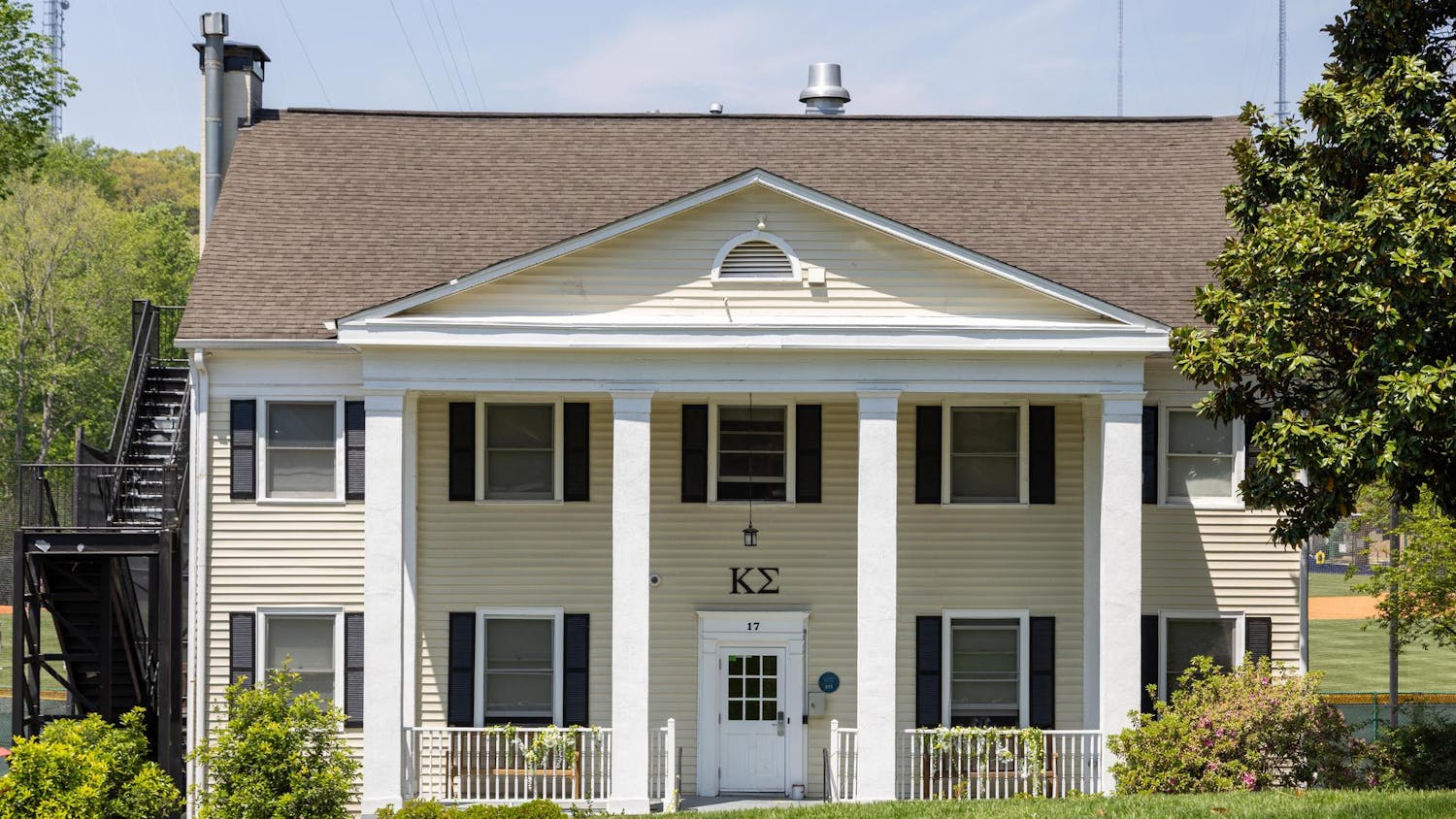Emma Friese (24C) and Sruti Kumar (20Ox, 22C) have submitted a challenge to the constitutionality of the run-off election for Student Government Association (SGA) president, alleging that there is no identifiable written procedure in SGA governing documents on how to proceed with elections following a “no confidence” win in the general election.
The Constitutional Council hearing, Friese v. SGA, is scheduled to take place as a Zoom webinar on April 11 at 7:30 p.m.
“I was floored by the utter lack of procedure and the impending possibility of a Constitutional Crisis,” Friese wrote in the challenge. “Kumar was also extremely concerned with these Constitutional issues when I brought them to her attention.”
The SGA presidential election advanced to a run-off after neither Alyssa Stegall (21Ox, 23C), Eleanor Liu (21Ox, 23B) or “no confidence” received over 50% of the vote in the general election. In the run-offs, “no confidence” received the majority vote, garnering 656 (51.37%) votes while Stegall received 621 (48.62%) votes.
Since “no confidence” won, Stegall’s former running mate Noah Marchuck (24C), who won the SGA vice presidential election on March 25, will become SGA president and appoint a new vice president, according to a March 28 email to the Wheel from Elections Board Attorney General Stewart Zelnick (20Ox, 22C).
This is the first time “no confidence” has won an SGA presidential election at Emory University, Elections Board Chair Mild Trakarnsakdikul (19Ox, 22B) wrote in a March 28 email to the Wheel before the runoff election.
The historic “no confidence” win comes after former SGA presidential candidate Elizabet Ortiz (24C) called on the student body to vote “no confidence” after she was disqualified due to her enrollment status as a gap-year student. Ortiz dropped out of the race but continued to champion a vote of “no confidence” as a measure to advocate for the SGA legislature to amend the Code of Elections. In a March 19 Instagram post, she noted that voting “no confidence” is akin to standing in “solidarity with disenfranchised students on campus.”
Friese and Kumar wrote in their appeal that they met each other while working on Ortiz’s campaign. Kumar said that while she is graduating in May, she hopes filing the challenge will “ease social pressure,” as Ortiz was “cyberbullied after publicizing her disqualification.” Friese noted that while she is friends with Ortiz and worked closely with her, their appeal is not an attempt to get Ortiz back on the ballot.
“The larger implication of such a case is that students in the future do not have to navigate the murky waters of election regulations,” Kumar wrote in the challenge. “This would also provide students in the future with the agency to demand better from the student government.”
Friese and Kumar alleged five claims against the Board of Elections: (1) “the Board of Elections’ authority is conditional on their strict adherence to the Code of Elections,” (2) the SGA presidential run-off election was illegal because there are no procedures in SGA’s governing documents that outline a run-off election against no confidence and the Board of Elections’ duty is solely to regulate elections, (3) the Board of Elections failed to uphold the rules of the Code by instituting new election regulations during an election cycle, (4) policies surrounding a “‘no confidence’ election in both the Code of Elections and SGA governing document win are unclear and insufficient” and (5) the procedure for fulfilling the SGA presidential vacancy is not outlined in the SGA constitution or under the jurisdiction of the Board to interpret.
Friese and Kumar both declined to comment until after the hearing.

Madi Olivier (she/her) (25C) is from Highland Village, Texas, and is majoring in psychology and minoring in rhetoric, writing and information design. Outside of the Wheel, she is involved in psychology research, the Emory Brain Exercise Initiative and the Trevor Project. In her free time, you can find her trying not to fall while bouldering and obsessively listening to Hozier with her cat.







